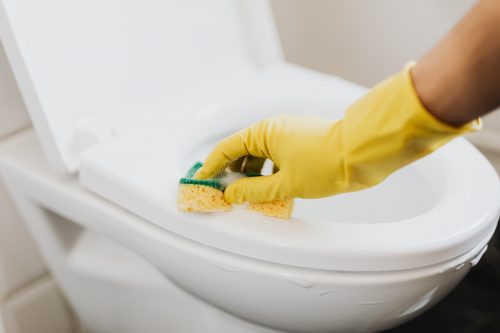Many buildings and homes have on-site wastewater treatment systems known as septic systems. A septic tank and a drain field are part of the septic system. The septic tank is underground and collects solids and scum from your wastewater. Because they are underground, their importance is often overlooked. They help in maintaining human and environmental health. Septic systems are popular in rural areas, but they can also be found in urban areas.

The most common cause of septic tank collapse is poor maintenance. Maintaining your septic tank and avoiding costly repairs is easy. Septic tanks that fail are costly to fix or replace, and the cost of repairs is borne by the property owner. Now the question arises what to do to avoid this situation?
Below are some important factors that need to be noted when maintaining a septic tank.
1. Inspect the tank and pump it on a regular basis
A septic service specialist should inspect the septic tank at least every 3 years. For this, you can reach out to expert service providers like civilmart.com.au. They will search the septic tank for leaks and check the scum and sludge layers.
Write down the sludge and scum levels detected by the septic specialist. Keep maintenance records for all septic system work.
Septic tanks in homes need to be pumped after every three to five years. Pump the tank if you don’t know when it was last pumped. Previous property owners may have skipped this crucial step.
2. Proper disposal of waste
Anything that goes down your drains ends up in your septic tank. No matter whether you flush it down the toilet, grind it in the garbage disposal or pour it down the sink, tub, or bath. What goes down the drain has an impact on how well your septic system functions.
Your septic tank contains living organisms that digest and handle the household waste. Toxins will destroy these species and damage your septic system if you pour them down the drain. The more garbage you put down the garbage disposal, the more likely it is that your septic tank will be harmed. To stop clogging, the systems avoid putting condoms or fats down the garbage disposal. Instead, toss these things in the garbage.
Your septic tank is not a garbage disposer. A good rule of thumb is to not flush anything other than human waste and toilet paper.
3. Maintenance of drainage
The drain field eliminates pollutants from the liquid that comes from your septic tank. Here are several things you can do to keep it going:
- Never park or drive on your drain field.
- Plant trees away from the drain field to prevent roots from spreading into your septic tank. A septic service professional will tell you the proper distance. The distance depends on your septic tank and landscape location.
- Keep away roof drains, sump pumps & other rainwater drainage systems from the drain field area. Excess water delays halt the wastewater treatment process.
4. Wise use of water
In a typical single-family home, the average indoor water use is 70 gallons per person per day. A single running or leaking toilet can waste up to 200 gallons of water per day. The water that a household sends down its pipes leads to its septic tank. The less water that reaches the septic tank, the more water a household conserves. Efficient water usage increases septic system activity and lowers the risk of failure.
There are some ways suggested by EPA to control water wastage:
- Using high-efficiency toilets
- Using faucet aerators, high-efficiency showerheads, and shower flow restrictors.
- Washing small loads of laundry in your washing machine wastes water and electricity. Water waste must be reduced by choosing the appropriate load size. If you can’t choose a load size, do full loads of laundry.
5. Use a Bacteria Additive
Why should bacteria additives be used? They degrade the presence of unnatural substances & solids that penetrate your septic tank. Plus, they are a low-cost insurance policy that keeps your pipes clean, safe and odor-free.
Household chemicals entering your septic tank destroy the bacteria. These bacteria allow your septic system to work properly.
So make sure you educate everyone in your home about proper septic system treatment as this would have a significant impact on the health, the lifespan of your system and help you save a lot of money!
Interesting Related Article: “Important Checks to Make When You Buy a New Home“
